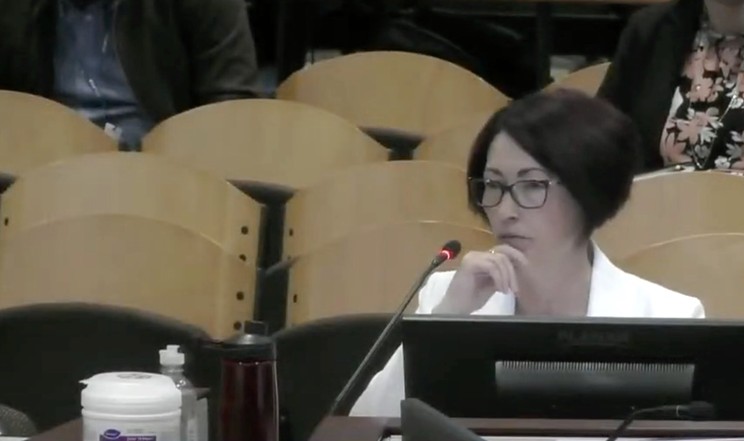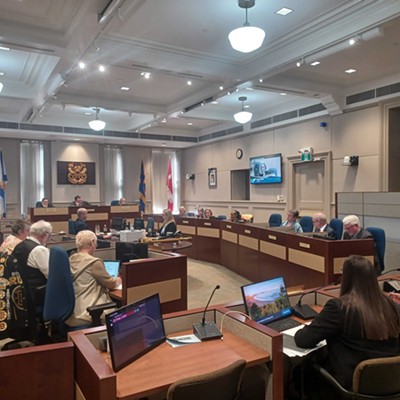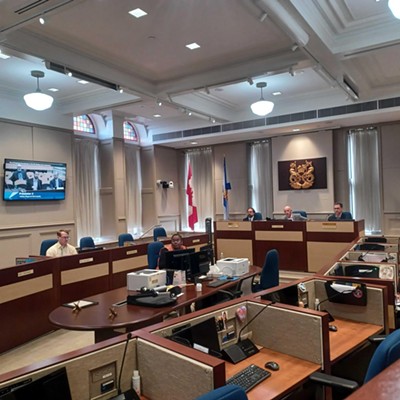At a meeting of the city council’s audit and finance committee on Wednesday, Halifax auditor general Evangeline Coleman-Sadd presented her look into HRM’s policies around respectful workplaces. She found that the city has a strategic initiative to enhance workplace respect, but no policies to enforce or measure it. The city also cannot see if its policies are actually doing anything to make workplaces more respectful. The AG had 15 recommendations; her full report can be found here.
Some of the significant issues are more notable than others. The HRM’s human resources department did independent reviews of its policies and programs in 2016 and 2019 to ensure the HRM has a respectful working environment. These reviews produced 23 recommendations relevant to the AG’s 2022 audit. Thirteen of those recommendations from 2016 and 2019 are still in progress to be implemented in 2022. And what progress the city did make on recommendations from the 2016 survey, it lied about.
We should do “our due diligence as a committee,” said councillor Cathy Deagle-Gammon as she submitted a motion to “direct the chief administrative officer to request a staff report on an action plan to address the recommendations within the Management of Respectful Workplaces Audit Report within six months.”
“To suggest that we’ll have an action plan associated with every one of these recommendations by that time is quite a challenge,” said CAO Jacques Dubé. “You can take that as a commitment by me.”
Dubé then switched from responding to the motion for an action plan, to complaining about the audit. “The timing of this report has the possibility to negatively impact employee morale,” said Dubé, the man who’s gotten in trouble for harassing an employee. “The idea that somehow HR can control the culture of the organization from their offices is not something we agree with,” said Dubé, who a few sentences later said his office actually *does* control workplace culture from his offices.
Speaking of the chief administrative officer’s office, in 2018, the city launched a complaint line that goes straight to the CAO’s office. The city did this to try and address widespread racism in the Halifax Transit business unit. In the AG’s report, she noted that the complaint line is not easy to find for employees who want to make an anonymous complaint (it’s only posted on physical notice boards). The AG could not find records of calls or voicemails to the line. She also found that when someone calls, there is no policy for who should answer the phone or how complaints should be logged, retained or actioned. “Employees may not see this as a trusted, confidential reporting option,” reads her report.
Councillor Shawn Cleary pushed back against Dubé’s whining, saying the AG’s report isn’t dictating a culture for the HRM. What her report outlines, Cleary argued, is that if the city does things to create a positive workplace culture, the city has no way to track if its changes have the desired effect.
Deagle-Gammon’s motion to get an action plan from the CAO’s office passed despite Dubé’s protests.
One other notable finding from the AG’s report is that the Halifax Regional Police had a “notably higher” number of employees saying their workplace sucked in a 2018 survey done by the city. Coleman-Sadd expected business units with poor results from that survey to implement plans to improve things, writing in her report that action plans are “particularly important for business units with less positive survey results.” The police department is one of five business units that did not make an action plan.
The city also has a code of conduct that says the city protects whistleblowers, but the auditor general found no policies that tangibly protect whistleblowers.
In other business at the audit and finance meeting, the committee got a presentation from Banook Canoe Club requesting funding. The club wants $250,000 to improve municipal lands around Lake Banook, which it says will increase safety and accessibility. It’s also requesting HRM remove permitting fees, which total about $15,000. The club’s building is 120 years old, and showing its age; knowing it will need all the money it can get for renovations, the non-profit is asking for help from the city for the stuff that could or should, in theory, be the city’s responsibility. The committee decided to get a staff report to see if these are, in fact, things the city should fund. The motion to get a report passed unanimously.
Finally, the city’s investments are doing well and will be presented to council. And the committee gave $50,000 to start developing the Sheet Harbour Marina.















